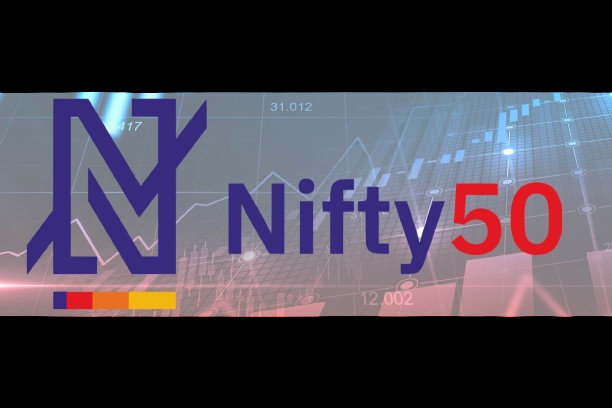If you are wondering what is Nifty 50 then do know that is a renowned stock market index developed by the National Stock Exchange (NSE). ‘Nifty’ is a combination of the words “National Stock Exchange” and “fifty.” This is because the NIFTY 50 is the NSE’s flagship benchmark index, exhibiting the top 50 performing equity firms traded on the platform. On a single day, the NSE trades 1600 stocks.
Now that we know what the Nifty 50’s purpose is, we can see that the stocks on its index represent 12 different sectors of the Indian economy. These include financial services, telecommunications, information technology, consumer goods, metals, entertainment and media, pharmaceuticals, cement, fertilisers and pesticides, vehicles, energy, and others. Nifty follows the patterns and overall trends of blue-chip corporations.
In India, the NIFTY 50 is one of two national benchmark indices. The SENSEX index, which includes the 30 best-performing equities on the Bombay Stock Exchange, is another standard. Nifty alone has many sub-indices. These are the NIFTY IT, NIFTY Next 50, and NIFTY Bank, each of which covers a different asset class, sector, or portion of the market.
What is Nifty 50? How is Nifty calculated?
Nifty 50 indices are calculated using both float-adjusted and market capitalization-weighted methods. The index level displays the sum of the market value of the shares in it over a given period. The Nifty’s base duration is November 3rd, 1995. The index’s base value is $1,000, and its base capital is $2.06 trillion. The formula for calculating the index’s value is as follows:
Index value = current market value divided by 1000 * Base Market capital.
The formula is not the only way to calculate values. Changes in corporate practices, such as stock splits, rights insurance, and others, are also considered. Because the NIFTY is a benchmark against which other equity share markets in India are measured, index maintenance checks are performed regularly. This ensures that it is stable and functional so that it can continue to serve as a national benchmark index.
Which sectors are covered by Nifty?
The Nifty is comprised of stocks from key sectors of the Indian economy in terms of sector participation. Energy 14.38%, IT 13.71%, Consumer Goods 10.66%, Automobiles 5.71%, Construction 3.99%, Metals 3.61%, Pharmaceuticals 2.15%, Telecom 1.84%, Cement & Cement Products 1.74%, Fertilisers & Pesticides 0.72%, Services 0.67%, and Media & Entertainment 0.42% account for 40.39% of the total weight.
Criteria for Eligibility for NIFTY Listing
NIFTY is updated every 6 months to reflect the most recent stocks and trends. During this period, it evaluates stock performance over the previous six months and determines whether a company’s shares meet the qualifying criteria. The NIFTY index is now managed by NSE Indices Limited.
This is an index Advisory Committee that provides recommendations and expertise on large-scale stock indices challenges. As a result, index managers will add or delete old or new stocks from the benchmark. Companies are involved in the reconstitution process four weeks before the new additions. The following conditions must be met to be eligible for listing on NIFTY.
- While residing in the country, the company must be registered with the National Stock Exchange (NSE).
- The company’s shares should be extremely liquid. This is calculated by taking the average of their impact costs. The impact cost is the cost of trading a single security about the weight of the index as measured by the company’s market capitalization. For 6 months, the company’s effect cost should be less than or equal to 0.50% or below on 90% of sightings and analyses on a portfolio worth more than 10 crores.
- The company’s trading frequency should have been 100% in the previous six months.
- The company’s average market capitalization should be free-floating.
- Companies with DVR shares, or shares with ‘Differential Voting Rights,’ are also eligible to be included in the Nifty 50.
Apart from the 6-month reconstitution cycle, the index is reconstituted whenever a firm undergoes events such as spin-offs, suspensions, compulsory delisting, or mergers and acquisitions. Nifty also undertakes a quarterly screening of each of its companies to ensure that they are adhering to the portfolio’s regulations for ETFs and Index Funds. SEBI, or the Securities and Exchange Board of India, is constantly issuing new mandates that companies must follow or risk being delisted from indices like the Nifty.



